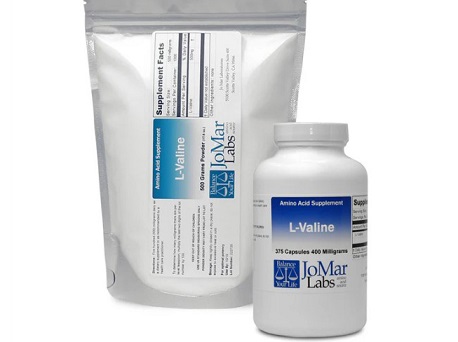Nikhil Prasad Fact checked by:Thailand Medical News Team Jul 05, 2024 1 year, 5 months, 3 weeks, 1 day, 20 hours, 11 minutes ago
Sepsis Updates: Sepsis is a serious and often deadly condition that affects many patients in intensive care units worldwide. It occurs when the body’s response to infection leads to widespread inflammation, resulting in significant damage to various organs, including the intestines. This can cause severe complications and even death.
 L-Valine From Gut Microbiota Helps Fight Sepsis
The Role of Gut Microbiota
L-Valine From Gut Microbiota Helps Fight Sepsis
The Role of Gut Microbiota
Our intestines are home to trillions of bacteria, collectively known as the gut microbiota. These tiny organisms play a crucial role in maintaining our health by aiding digestion, producing essential vitamins, and protecting against harmful pathogens. However, when the balance of these bacteria is disrupted, it can lead to severe health issues.
Researchers have been exploring how gut microbiota might impact the severity of sepsis. A recent study led by scientists from the Shanghai Fifth People’s Hospital and Fudan University in China that is covered in this
Sepsis Updates, has shed light on this relationship, particularly focusing on a compound called L-valine, which is derived from the gut microbiota.
L-Valine: A Potential Protector
L-valine is an amino acid produced by the gut microbiota. It is known to be essential for protein synthesis and various metabolic functions. The study found that L-valine levels were significantly lower in patients with severe sepsis compared to healthy individuals. This deficiency was linked to greater intestinal damage and more severe sepsis symptoms.
The Study’s Key Findings
-Reduced Gut Microbiota Diversity in Sepsis Patients: The researchers collected fecal samples from sepsis patients and healthy controls to analyze the composition of their gut microbiota. They discovered that patients with sepsis had significantly lower diversity in their gut bacteria. This reduced diversity was associated with increased intestinal damage.
-Impact on Mice: To further understand the role of gut microbiota in sepsis, the scientists conducted experiments on mice. They transplanted gut bacteria from sepsis patients into antibiotic-treated mice. The results were striking: the mice that received gut bacteria from sepsis patients developed more severe intestinal damage compared to those that received bacteria from healthy individuals.
-Protective Role of L-Valine: The researchers also investigated the specific impact of L-valine on sepsis-induced intestinal injury. In their experiments, they administered L-valine to mice with sepsis and observed significant improvements in their intestinal health. The mice treated with L-valine showed reduced inflammation and less intestinal damage, suggesting that L-valine has a protective effect.
How Does L-Valine Work?
L-valine appears to help maintain the integrity of the intestinal barrier, which is crucial in preventing harmful bacter
ia from entering the bloodstream and causing further infections. By strengthening this barrier, L-valine helps reduce inflammation and protect against severe complications associated with sepsis.
Correlation with Sepsis Severity
The study also found a negative correlation between L-valine levels and the severity of sepsis. Patients with higher levels of L-valine tended to have less severe symptoms, suggesting that this amino acid could play a critical role in mitigating the impact of sepsis.
Potential Therapeutic Applications
The findings from this study open up exciting possibilities for new treatments for sepsis. By boosting L-valine levels in patients, it might be possible to reduce intestinal damage and improve outcomes for those suffering from this severe condition. While more research is needed to fully understand the mechanisms at play, this study provides a promising avenue for future therapeutic strategies.
Conclusion
Sepsis remains a significant challenge in healthcare, but studies like this one offer hope for better treatments. The gut microbiota and its metabolites, such as L-valine, play a crucial role in our health. Understanding how these components interact with our body during severe conditions like sepsis can lead to new and more effective therapies.
By focusing on the protective effects of L-valine, researchers are paving the way for innovative approaches to sepsis treatment. As we continue to uncover the mysteries of the gut microbiota, we move closer to improving the lives of patients affected by this life-threatening condition.
For those interested in the latest developments in medical research, keeping an eye on studies like this one is essential. They remind us that even the smallest components of our body, like gut bacteria and their metabolites, can have a profound impact on our health.
The study findings were published in the peer reviewed journal: Frontiers in Immunology.
https://www.frontiersin.org/journals/immunology/articles/10.3389/fimmu.2024.1424332/full
For the latest
Sepsis Updates, keep on logging to Thailand Medical News.
Read Also:
https://www.thailandmedical.news/news/phytochemical-from-marine-fungus-yields-promising-sepsis-treatment
https://www.thailandmedical.news/news/acetaminophen-s-potential-in-sepsis-treatment
